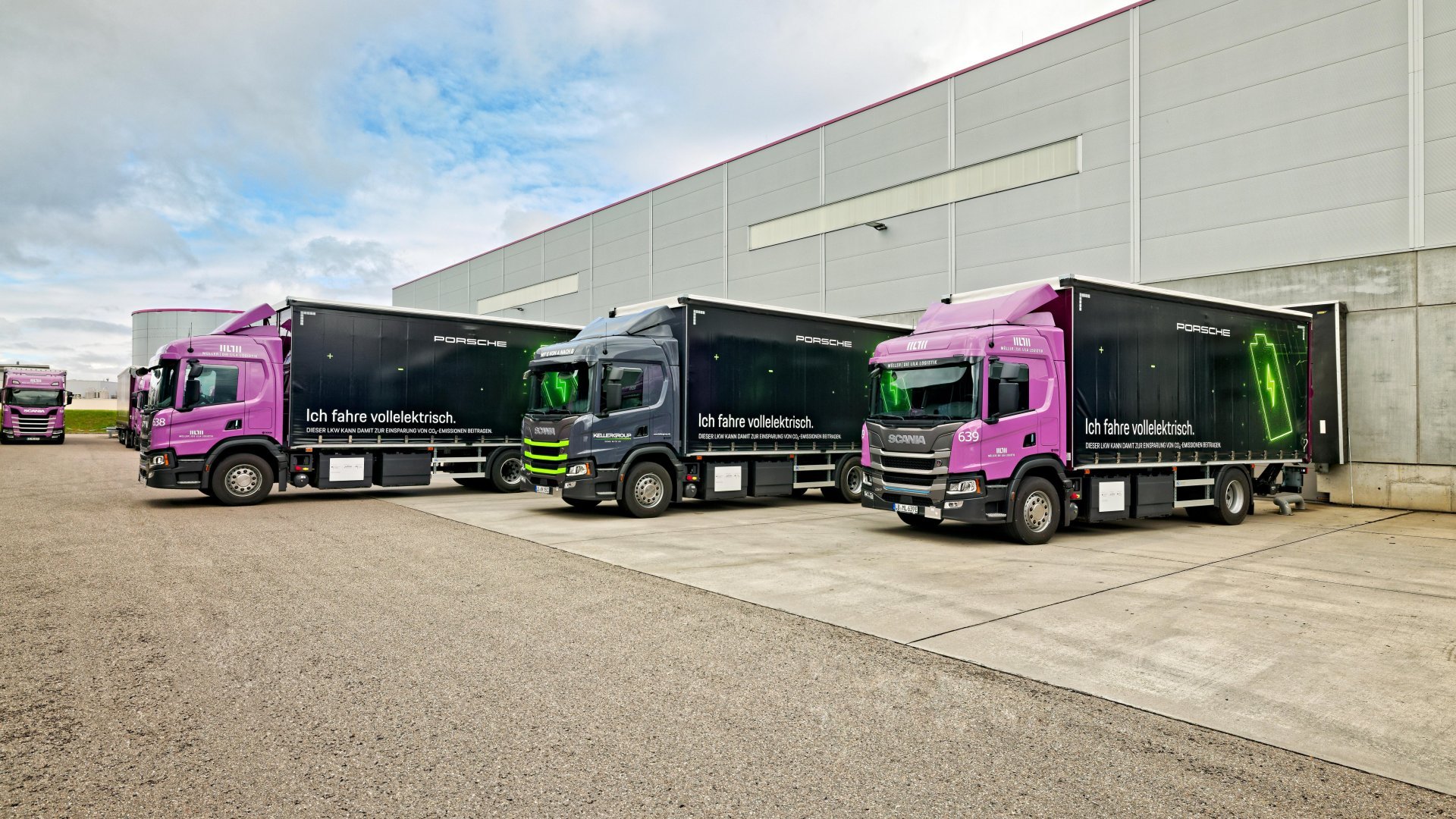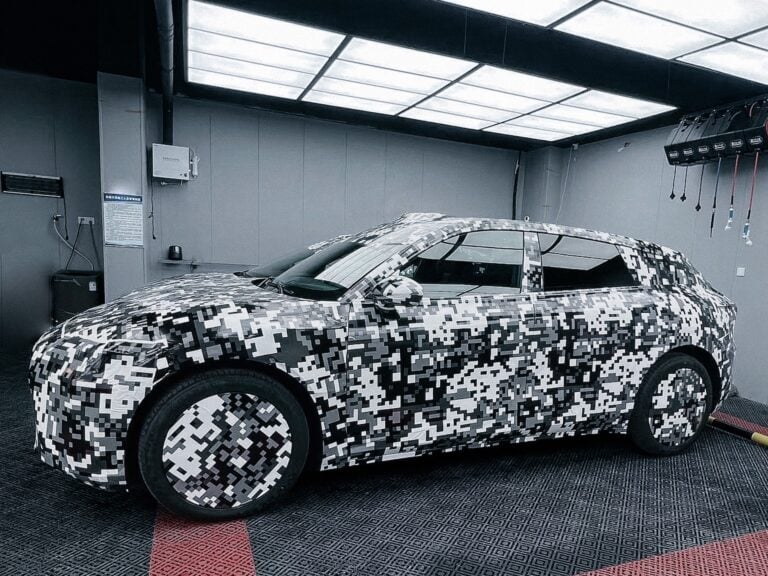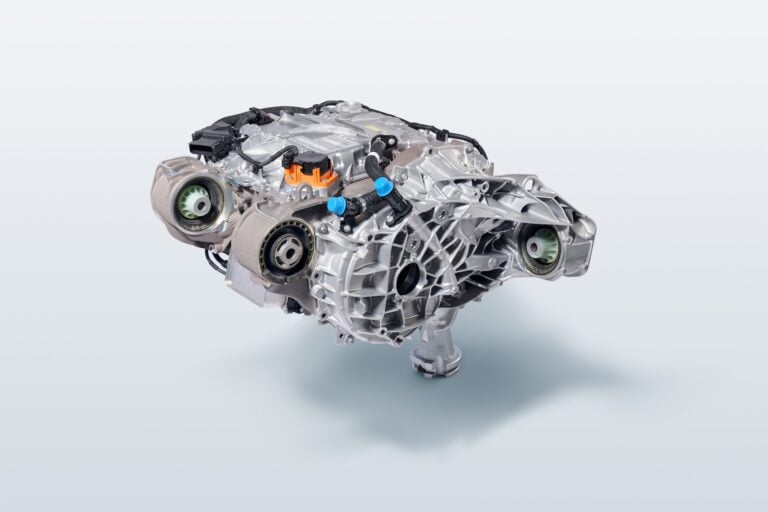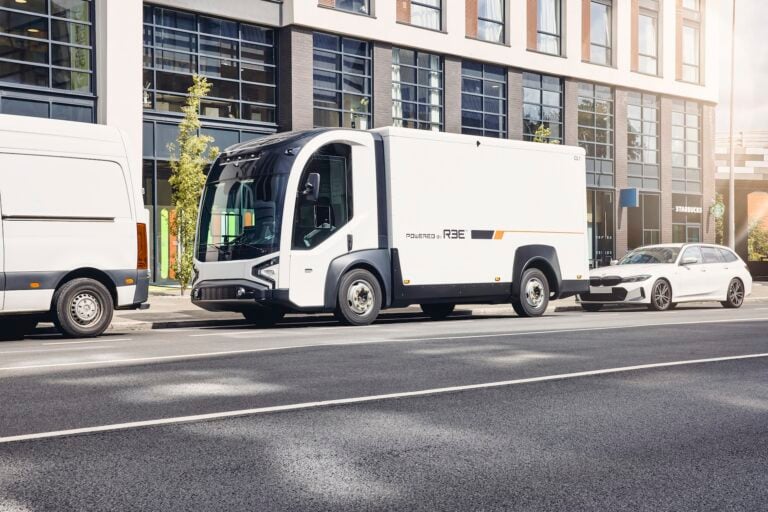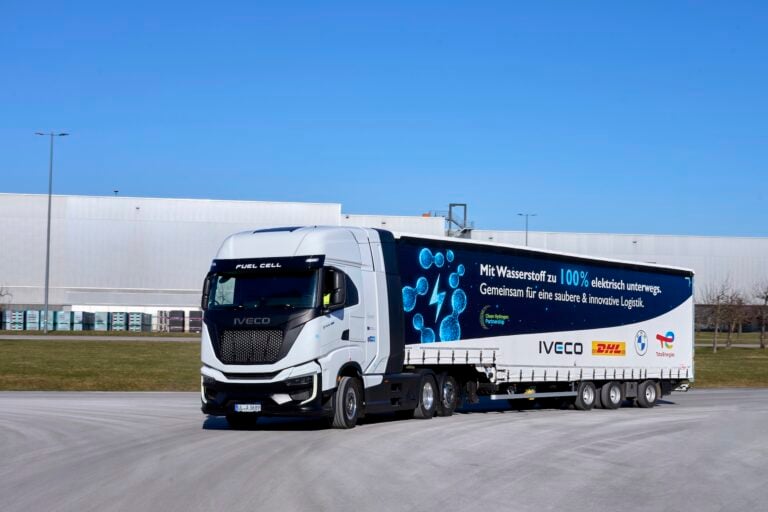Sign up for our popular daily email to catch all the latest EV news!
Porsche is actively expanding its use of alternative drives within its transport logistics operations, implementing a blend of electric and biogas-powered heavy goods vehicles (HGVs) at its key German production sites in Zuffenhausen, Weissach, and Leipzig. This initiative aligns with the company’s comprehensive decarbonization and sustainability goals, utilizing a diverse mix of energy sources tailored to specific vehicle applications.
Key Highlights
- Porsche integrates six new electric HGVs with its existing fleet across multiple sites.
- Biogas-fueled HGVs and electric vehicles continue to support both production material transport and new vehicle deliveries.
- Ongoing trial of synthetic diesel fuels (HVO100), scientifically supported by the Karlsruhe Institute of Technology, showcases significant CO2 reductions.
- Partnerships with logistics companies ensure the use of green electricity for electric HGV operations.
Porsche’s commitment to sustainability is evident in the words of Albrecht Reimold, Member of the Executive Board for Production and Logistics: “Decarbonisation is an integral part of our sustainability strategy. The use of trucks with alternative drives and fuels is an important step toward achieving our ambitious goals. In doing so, we are consciously opting to use a mix of drive types that are appropriate to how the vehicles are deployed.”
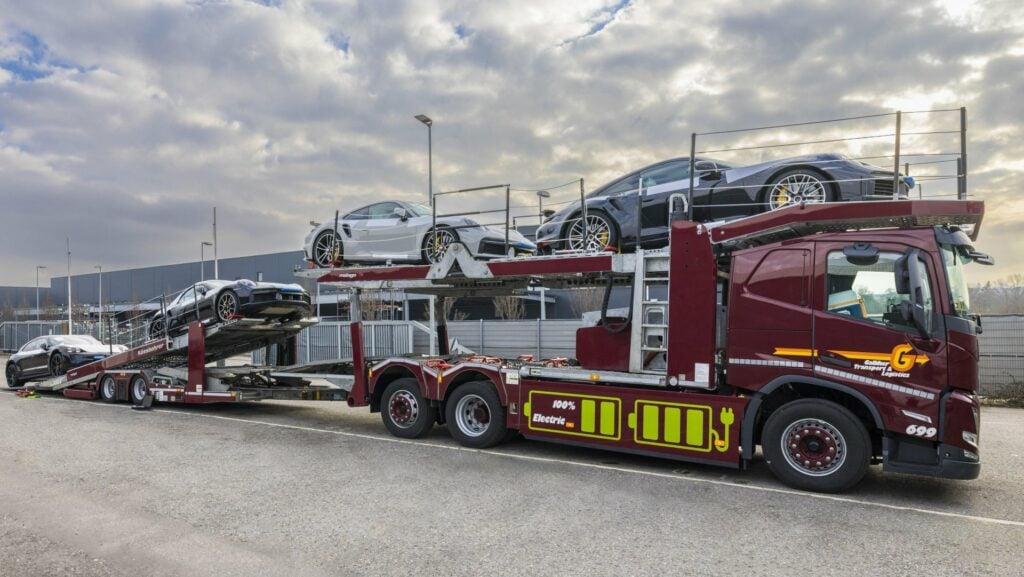
In addition to new electric HGVs, Porsche has long employed HGVs powered by compressed natural gas (CNG) and liquefied natural gas (LNG). These efforts are now enhanced by the inclusion of electric vehicles in standard logistics processes, with companies like Keller Group, Müller – Die lila Logistik, Elflein, and Galliker committing to the use of renewable power sources.
Use of re-fuels with selected trucks in the existing HGV fleet has also been a significant part of Porsche’s strategy. Since 2020, Porsche has tested the use of HVO100 synthetic diesel, made from residual and waste materials, in twelve HGVs. This fuel meets the specifications of the Renewable Energy Directive II (RED II) and has demonstrated reliability and efficiency comparable to traditional diesel, with the added benefit of over 800 tons of CO2 savings.
By integrating both rail and road transport options, Porsche continues to focus on decarbonizing its entire logistics chain. Rail transport particularly plays a critical role in the distribution of parts and new vehicles to seaports for global export. Moreover, the company’s vehicle production at Zuffenhausen and Leipzig has achieved a CO2-neutral status since 2020, further solidifying Porsche’s commitment to environmental sustainability.
Sign up for our popular daily email to catch all the latest EV news!

